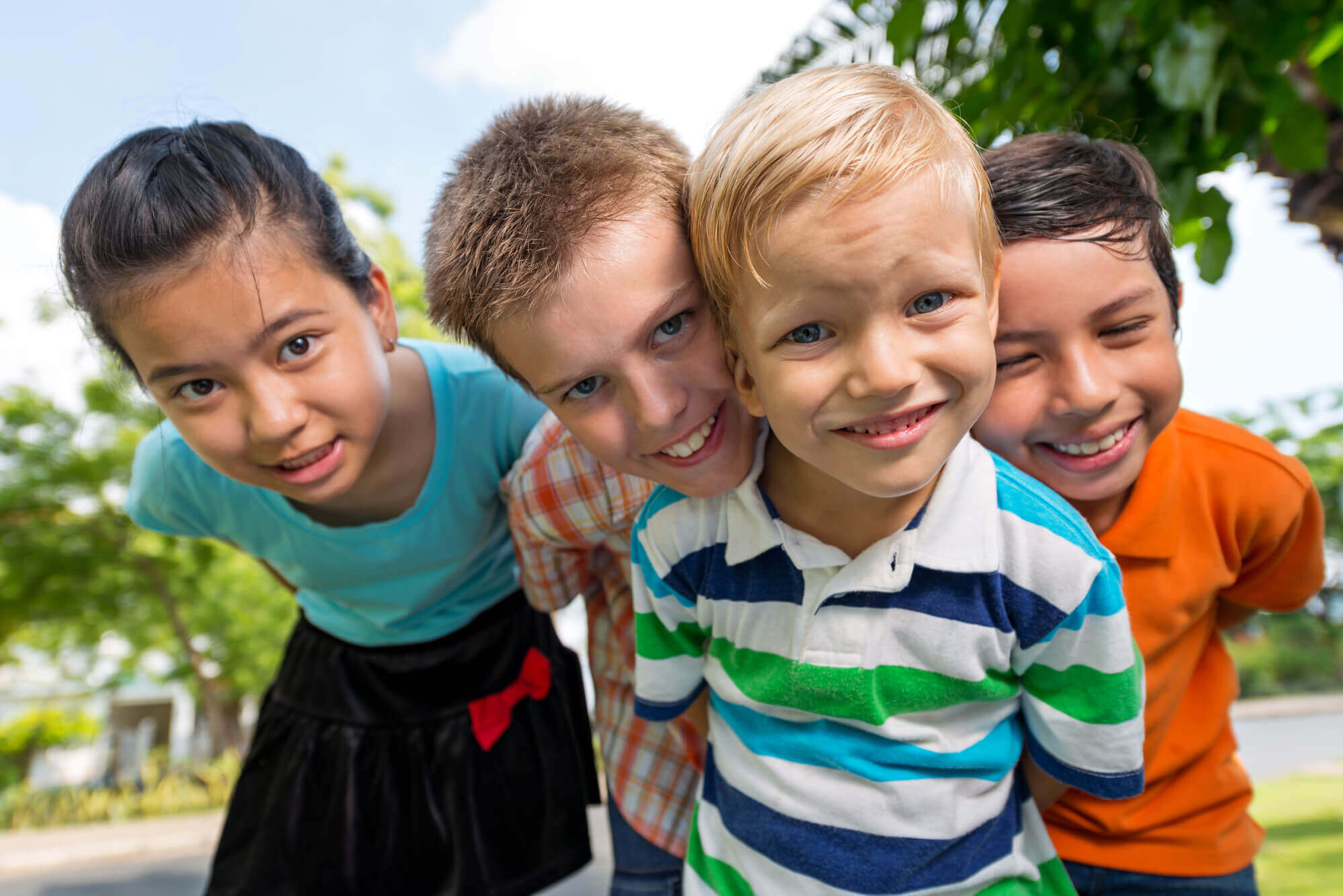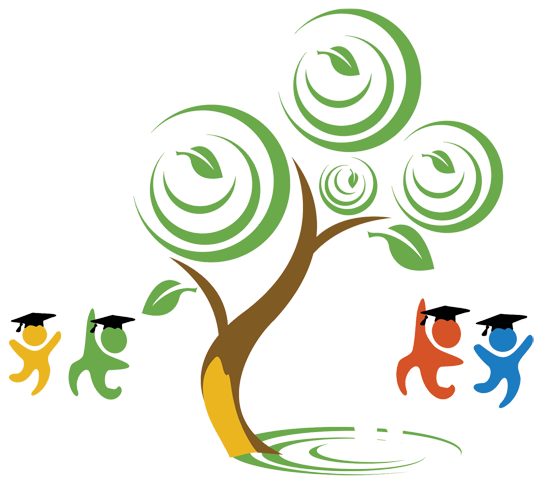
Choosing when to enroll your child in preschool ranks among the most important decisions parents face during early childhood. For families searching for preschool in Riverside, Riverside preschool programs, or Montessori in Riverside options, understanding California’s guidelines alongside your child’s individual developmental readiness creates the foundation for successful early education experiences.
At Sierra Preschool & After School, we’ve guided hundreds of families in
Riverside
,La Sierra
, andCorona
through this decision, helping parents identify the perfect timing for their children to begin their educational journey.Understanding California’s Preschool Age Guidelines
California doesn’t mandate a specific preschool starting age, providing families flexibility to choose based on individual circumstances. However, understanding typical frameworks helps guide your decision:
State Transitional Kindergarten (TK) Requirements: California children must turn 5 by September 1st to enter kindergarten, with transitional kindergarten available for children turning 5 between September 2nd and February 2nd (expanding through 2025 to include all 4-year-olds).
Common Preschool Age Ranges:
- Young Toddler Programs: 18 months to 2 years
- Toddler Programs: 2 to 3 years
- Preschool Programs: 3 to 4 years
- Pre-Kindergarten Programs: 4 to 5 years
Most preschool in Corona and Riverside Montessori programs begin accepting children around age 2½, though readiness depends on individual development rather than age alone.
The Ideal Age Range: What Research Shows
Educational research and child development experts generally agree that ages 3 to 4 represent the optimal window for starting preschool. Here’s why:
Why Age 3 Often Works Best
Social-Emotional Readiness:
- Children typically develop increased interest in peer interaction around age 3
- Ability to separate from parents improves significantly
- Emotional regulation becomes more manageable
- Understanding of basic rules and routines develops
Cognitive Development:
- Language skills explode between ages 2 and 3
- Attention span increases enough for structured activities
- Curiosity about learning becomes more directed
- Abstract thinking begins emerging
Physical Capabilities:
- Fine motor skills support activities like drawing and manipulating objects
- Gross motor development enables playground participation
- Independence in toileting often achieved
- Self-care skills like handwashing and eating become more developed
Social Benefits:
- Optimal window for learning social skills through peer interaction
- Formation of first friendships outside family
- Development of sharing and cooperation abilities
- Learning to navigate group settings
Why Some Children Start at Age 2
Some Riverside preschool families choose earlier enrollment when:
Practical Needs:
- Both parents work full-time requiring comprehensive childcare
- Family situation necessitates structured care environment
- Older siblings attend same school simplifying logistics
- Home environment lacks peer interaction opportunities
Child Characteristics:
- Exceptional social interest in other children
- Advanced verbal communication skills
- High energy requiring structured outlets
- Shows clear boredom with home activities
Program Quality:
- High-quality programs with excellent 2-year-old ratios and curriculum
- Teachers specifically trained in toddler development
- Appropriate facilities and activities for very young learners
- Gradual introduction schedules supporting adjustment
- Medical considerations affecting immune system development
Assessing Your Child’s Developmental Readiness
Age provides just one factor in preschool readiness. At Sierra Preschool, we help families evaluate these critical developmental markers:
Social-Emotional Indicators
Ready:
- Shows interest in playing with other children
- Can separate from parents with manageable distress
- Demonstrates some ability to share and take turns
- Follows simple rules and directions
- Expresses needs and wants verbally
- Shows curiosity about new experiences
May Need More Time:
- Extreme separation anxiety affecting daily functioning
- Complete inability to share or consider others
- Frequent aggressive behavior with peers
- No interest in structured activities
- Inability to follow any directions
Communication Skills
Ready:
- Uses phrases or simple sentences
- Understands and follows two-step directions
- Can communicate basic needs (bathroom, hungry, hurt)
- Engages in simple conversations
- Asks questions showing curiosity
May Need More Time:
- Very limited vocabulary for age
- Cannot make basic needs understood
- Shows no interest in verbal interaction
- Significant speech delays without intervention
Physical Development
Ready:
- Walks, runs, and climbs confidently
- Uses stairs with support
- Can manipulate crayons, markers, and large puzzle pieces
- Shows interest in self-care attempts
- Beginning toilet training or already trained
May Need More Time:
- Significant motor delays requiring intervention
- Medical needs requiring specialized care
- Physical limitations requiring program modifications
Self-Help Skills
Ready:
- Attempts self-feeding with utensils
- Tries to put on/remove simple clothing items
- Washes hands with assistance
- Toilet trained or actively training
- Communicates need for bathroom
May Need More Time:
- No interest in independence attempts
- Complete dependence in all self-care
- Refuses toilet training without medical cause
The Montessori Riverside Approach to Age and Readiness
Our Montessori-inspired curriculum at Sierra Preschool recognizes that development doesn’t follow strict timelines:
Mixed-Age Classrooms
Montessori in Riverside programs often group children across age ranges:
- Younger children learn by observing older peers
- Older children develop leadership and mentoring abilities
- All children progress at individual paces without comparison pressure
- Teachers differentiate instruction meeting diverse needs
Child-Directed Learning
Montessori philosophy emphasizes:
- Individual readiness determining activity participation
- Self-paced progress through developmental milestones
- Intrinsic motivation driving learning rather than external rewards
- Hands-on discovery supporting varied learning styles
Practical Life Focus
Montessori Riverside programs build independence through:
- Self-care skills integrated throughout the day
- Real tools and materials supporting capable feelings
- Age-appropriate responsibilities building confidence
- Respectful guidance honoring individual timelines
This approach accommodates children starting at different ages, meeting them where they are and supporting growth from that foundation.
Special Considerations for Riverside, La Sierra, and Corona Families
Work Schedules and Commutes
Southern California’s demanding work culture influences preschool timing:
- Long commutes may necessitate full-day programs requiring earlier start ages
- Inflexible schedules limit options for gradual preschool introduction
- Dual-income necessity often determines preschool timing more than readiness
- Extended family availability in some families allows delayed preschool enrollment
Cultural Considerations
Our diverse Riverside community brings varied perspectives on preschool timing:
- Cultural values regarding family vs. formal education
- Language considerations in multilingual households
- Extended family involvement in childcare
- Different educational priorities and timelines
Climate and Outdoor Learning
Southern California’s year-round sunshine influences preschool benefits:
- Consistent outdoor play supporting physical development
- Nature-based learning opportunities year-round
- Weather-independent enrollment without seasonal limitations
- Playground activities available daily supporting motor development
Economic Factors
Practical financial considerations affect timing:
- Preschool costs as significant family budget item
- Longer enrollment vs. quality of program tradeoffs
- Sibling enrollment timing for family discounts
- Alternative care costs compared to preschool investment
Signs Your Child Might Benefit from Starting Preschool
Consider enrolling in preschool in Riverside programs if your child:
Shows Social Readiness:
- Seeks interaction with children beyond family
- Shows interest in group activities
- Displays emerging empathy and awareness of others
- Needs peer interaction not available at home
Demonstrates Learning Readiness:
- Shows curiosity about letters, numbers, and learning
- Asks constant questions about the world
- Needs stimulation beyond home environment capabilities
- Would benefit from structured learning activities
Displays Behavioral Readiness:
- Can focus on activities for 10-15 minutes
- Follows simple directions consistently
- Shows increasing impulse control
- Manages transitions with minimal distress
Has Supportive Circumstances:
- Family schedules accommodate consistent attendance
- Parents feel positive about preschool decision
- Financial resources support quality program
- Convenient location available with excellent program
Signs You Might Want to Wait
Consider delaying preschool Corona enrollment if:
Developmental Concerns Exist:
- Significant delays requiring intervention first
- Medical needs better addressed before group setting
- Extreme separation anxiety requiring therapeutic support
- Special needs requiring specific program not yet available
Timing Isn’t Optimal:
- Major family transitions happening (new baby, move, divorce)
- Child would be youngest in class by significant margin
- Limited quality programs available in your area
- Financial constraints requiring delay
Alternative Options Work Well:
- Excellent home learning environment with engaged parent
- Quality playgroups providing social interaction
- Nanny share or family daycare meeting needs well
- Child thriving in current situation
Preparing Your Child for Preschool Success
Once you’ve determined ideal timing, preparation ensures smooth transition:
Months Before Starting
Build Independence:
- Practice self-care skills (washing hands, using utensils, toileting)
- Encourage age-appropriate decision-making
- Create opportunities for problem-solving
- Support attempts at dressing and undressing
Develop Social Skills:
- Arrange playdates with peers
- Visit playgrounds for peer interaction practice
- Model sharing and turn-taking
- Teach asking for what they need
Establish Routines:
- Create consistent daily schedules
- Practice morning routines
- Establish regular sleep schedules
- Build predictable meal and snack times
Visit the School:
- Tour Sierra Preschool facilities
- Meet teachers and administrators
- Explore playgrounds and classrooms
- Ask questions and express concerns
Weeks Before Starting
Talk About Preschool Positively:
- Read books about starting school
- Discuss activities and new friends
- Visit school again if possible
- Address fears and concerns calmly
Practice Separation:
- Leave child with trusted caregivers
- Extend separation time gradually
- Create goodbye rituals
- Always return when promised
Prepare Practically:
- Shop for necessary supplies
- Label belongings clearly
- Establish transportation routines
- Plan for first-day logistics
Supporting Different Age Groups at Sierra Preschool
Our Corona preschool and Riverside programs offer age-appropriate experiences:
Toddler Program (18-36 months)
Focus:
- Gentle introduction to group settings
- Sensory exploration and discovery
- Basic social skill development
- Independence building in self-care
Daily Structure:
- Flexible routines respecting individual needs
- Plenty of hands-on exploration
- Outdoor play and physical development
- Rest times supporting young bodies
Preschool Program (3-4 years)
Focus:
- Academic readiness skills
- Social-emotional development
- Creative expression
- Physical coordination
Daily Structure:
- Balanced academics and play
- Theme-based learning units
- STEAM activities
- Enrichment programs (music, movement, etc.)
Pre-Kindergarten Program (4-5 years)
Focus:
- Kindergarten preparation
- Advanced academic skills
- Leadership development
- Independence and responsibility
Daily Structure:
- Structured academic instruction
- Project-based learning
- Collaborative activities
- School-readiness skills
Making the Decision: A Personal Assessment
Use this framework to evaluate your family’s readiness:
Child Factors (60% weight):
- Developmental milestones met for age
- Social-emotional readiness indicators
- Communication and self-care abilities
- Interest and enthusiasm about school
Family Factors (25% weight):
- Work schedules and childcare needs
- Financial capacity for quality program
- Family values regarding education timing
- Sibling considerations and logistics
Program Factors (15% weight):
- Quality programs available nearby
- Appropriate class placement options
- Teacher qualifications and approach
- Schedule flexibility and fit
If child factors strongly indicate readiness (even if slightly younger) and quality programs exist, starting may be ideal. If child factors show readiness concerns, waiting often benefits long-term outcomes regardless of family convenience.
The Sierra Preschool Commitment
Whether your child starts at 2, 3, or 4 years old, we ensure:
Individualized Attention: Small ratios and trained teachers meeting each child where they are developmentally.
Flexible Programming: Options accommodating various starting ages and schedules.
Developmental Support: Curriculum adapting to different readiness levels within each classroom.
Family Partnership: Open communication supporting your child’s unique journey.
Quality Environment: Safe, stimulating spaces where all ages thrive and grow.
Ready to Explore Your Options?
Determining the ideal preschool starting age requires balancing developmental readiness, family needs, and available quality programs. There’s no single “right” answer, the best decision honors your child’s individual development while supporting your family’s circumstances.
Contact Sierra Preschool & After School today to:
- Discuss your child’s readiness with experienced educators
- Tour our age-appropriate classrooms and programs
- Learn about our Montessori-inspired approach
- Explore flexible scheduling options
- Meet our caring teaching team
Serving families throughout
